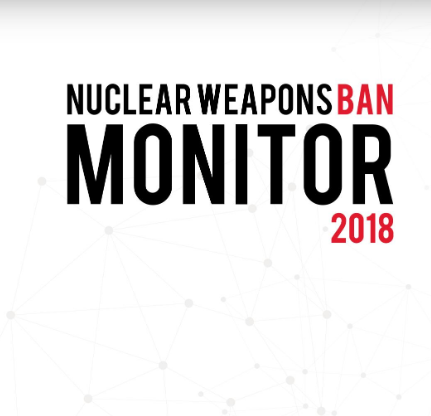
On 13 June 2019, the VCDNP, in cooperation with the Permanent Mission of Ireland to the International Organizations in Vienna, hosted the Vienna launch of the Nuclear Weapons Ban Monitor. Grethe Østern, Managing Editor of the Nuclear Weapons Ban Monitor, and Dr. Kjølv Egeland of Norwegian Academy of International Law provided an overview of the publication, explained its purpose and shared their ideas on how the Monitor can help shape the discussion in the field of nuclear disarmament. Ambassador Thomas Hanney of the Permanent Mission of Ireland gave introductory remarks.
Originally launched in October 2018 in New York, the Ban Monitor tracks universalisation and implementation of the Treaty on the Prohibition of Nuclear Weapons (TPNW). It also offers legal interpretations of the core obligations enshrined in the TPNW’s Article 1 and evaluates the degree to which States, both adherents and non-adherents, act in accordance with those prohibitions. Tracking nuclear policies and implementation of disarmament commitments, the Ban Monitor provides an annual snapshot of the global state of play in nuclear disarmament.

In his opening remarks, Ambassador Hanney highlighted the value of the Ban Monitor as a source of a comprehensive, easy-to-digest overview of the status of the TPNW for various stakeholders. He also emphasised that the Monitor effectively demonstrates how the majority of States are already compliant with the TPNW, whether they are signatories or not. States that do not act in accordance with the TPNW are primarily those that have nuclear weapons or are in military alliances with nuclear-weapon States, which places them under extended nuclear deterrence.
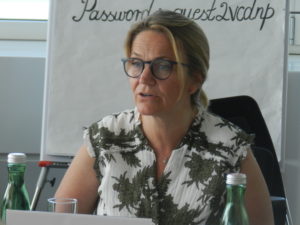
Ms. Østern provided an overview of the issues that the Ban Monitor covers. Based on their nuclear-weapons-related stance and vote on the TPNW text, the monitor describes States as TPNW-supporters, nuclear-weapon-endorsing States and nuclear-armed States. Each of the 197 State profiles in the Monitor contains information on whether a given State has joined the TPNW, whether it acts in accordance with Article 1 of the TPNW, and how it participates in other nuclear-weapon-related treaties and mechanisms. Comparing statistics on the TPNW adherence with the status of other international disarmament and non-proliferation treaties at the same point in time after their opening for signature, Ms. Østern noted that the speed of the TPNW adherence is similar to that of other instruments, such as the Nuclear Non-Proliferation Treaty, the Biological Weapons Convention and the Chemical Weapons Convention. Speaking about predictions for the TPNW entry into force, she cautioned against simply extrapolating from current trends and adherence patterns of earlier treaties. Ms. Østern noted in this regard that, unlike other non-proliferation and disarmament treaties, powerful States are not promoting the TPNW and indeed are advocating against its entry into force.

In his remarks, Dr. Kjølv explained how in order to assess States’ compliance with the TPNW, the Ban Monitor devotes a chapter to the discussion and interpretation of the prohibitions contained in Article I of the treaty. He particularly noted the interpretations of the more ambiguous prohibitions on development and deployment of nuclear weapons as well as assistance in prohibited activities. He also reiterated that, according to the latest assessment published in October 2018, the overwhelming majority of States were compliant with the provisions of the TPNW. An updated assessment is expected to be published in October 2019 and presented on the margins of the United Nations First Committee session. As in addition to individual country profiles, the Monitor tracks support and compliance levels by region, Dr. Kjølv noted that Europe is the region with the lowest degree of support and adherence to the TPNW.
During the discussion, the panellists addressed the audience’s questions regarding the TPNW’s verification regime, the legal status of interpretations provided by the Monitor, and specific states’ compliance and prospects of joining the treaty. In particular, it was pointed out that Kazakhstan and Marshal Islands host missile test sites of Russia and the United States, respectively, which could be interpreted as an activity inconsistent with Article 1 of the TPNW. The speakers noted that in these two cases, the Ban Monitor assessed compliance as “uncertain” and that further analysis is being conducted for the next edition of the Monitor. The discussion of future verification of nuclear disarmament highlighted the fact that the TPNW provisions in this regard are open-ended, and that after the treaty’s entry into force States Parties would need to address the issue of designating an international authority to negotiate and verify the dismantlement of nuclear arsenals.
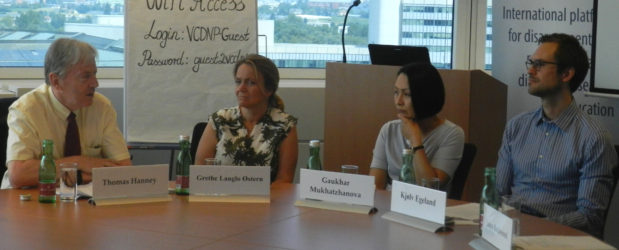

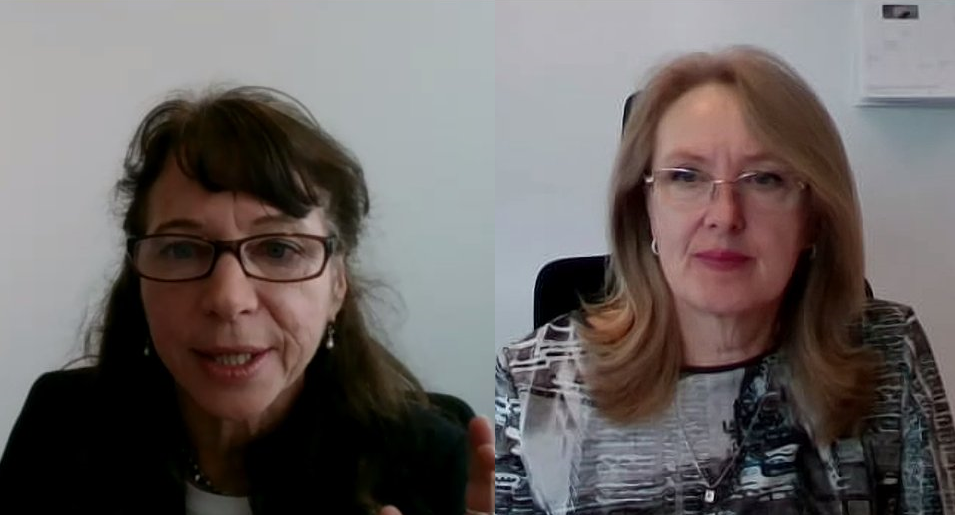
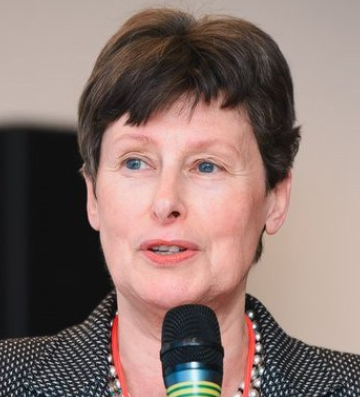
By continuing to use the site, you agree to the use of cookies. more information
The cookie settings on this website are set to "allow cookies" to give you the best browsing experience possible. If you continue to use this website without changing your cookie settings or you click "Accept" below then you are consenting to this.